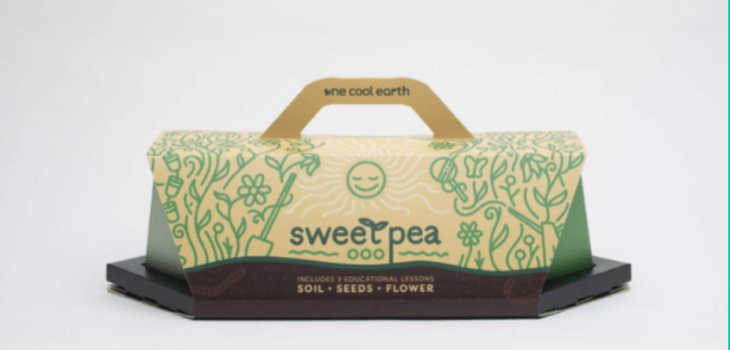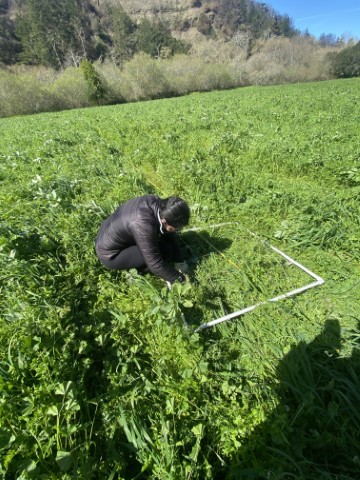Student Success – Cultivate Spring 2022
Definition of Success
1 a: degree or measure of succeeding b: satisfactory completion of something c: the gaining of wealth, respect or fame 2: a person or thing that succeeds
 The Cal Poly Dairy Judging Team competed in the Southwest Dairy Cattle Judging Contest at the 2022 Fort Worth Stock Show in Texas in January, emerging as the first-place team in oral reasons and as the second-place team overall. Team members included agricultural communication major Genevieve Regli, and dairy science majors Lantz Adams, Matthew Brasil, and Ryan Haringa. The team was coached by Animal Science Department lecturers Morgan Wonderly and Matt Ruby and emeriti professor Stan Henderson. In addition, the team placed as second high team in Jersey breed and fifth high team in brown Swiss breed. Regli received first place in reasons and seventh high individual overall, Adams received fourth in reasons and ninth high individual overall, and Haringa received fifth in reasons and 10th high individual overall.
The Cal Poly Dairy Judging Team competed in the Southwest Dairy Cattle Judging Contest at the 2022 Fort Worth Stock Show in Texas in January, emerging as the first-place team in oral reasons and as the second-place team overall. Team members included agricultural communication major Genevieve Regli, and dairy science majors Lantz Adams, Matthew Brasil, and Ryan Haringa. The team was coached by Animal Science Department lecturers Morgan Wonderly and Matt Ruby and emeriti professor Stan Henderson. In addition, the team placed as second high team in Jersey breed and fifth high team in brown Swiss breed. Regli received first place in reasons and seventh high individual overall, Adams received fourth in reasons and ninth high individual overall, and Haringa received fifth in reasons and 10th high individual overall.
 Three Cal Poly teams received awards at the Paperboard Packaging Alliance Student Design Challenge 2021, with students from the College of Agriculture, Food and Environmental Sciences serving on two of them. Recent food science alumna Maia Nelson and food science senior Chris Cheung were both on multi-disciplinary teams honored in the competition, with Nelson’s team placing in the top three and Cheung in the top nine. Nelson’s team “Sweet Pea” designed a packaging system for gardening education and Cheung’s team “EcoSLO” designed a packaging system for clean-ups of natural environments.
Three Cal Poly teams received awards at the Paperboard Packaging Alliance Student Design Challenge 2021, with students from the College of Agriculture, Food and Environmental Sciences serving on two of them. Recent food science alumna Maia Nelson and food science senior Chris Cheung were both on multi-disciplinary teams honored in the competition, with Nelson’s team placing in the top three and Cheung in the top nine. Nelson’s team “Sweet Pea” designed a packaging system for gardening education and Cheung’s team “EcoSLO” designed a packaging system for clean-ups of natural environments.
 Apollonia Arellano, a fourth-year environmental earth and soil sciences major, was selected to participate in the Cal State University’s Agricultural Research ARI-HSI Fellowship program. Students who successfully complete the fellowship receive a stipend of $6,400. The funding comes from a four-year $1 million grant from the National Institute of Food and Agriculture Hispanic Serving Institutions educational grant program. Arellano will study the effects of conventional and biodegradable plastic mulch leachates on plant development. Plastic mulch is used in agricultural production to warm soil, conserve soil moisture, prevent weed growth, and minimize nutrient loss. One alternative to conventional plastic mulch is biodegradable plastic mulch, which still contains chemical compounds that are leachable. Arellano will test the hypothesis that leachates derived from conventional plastic mulches will negatively impact plant development at a greater magnitude relative to leachates derived from biodegradable plastic mulches. “The results of my study will enable growers to make better-informed decisions when choosing between conventional plastic mulch and biodegradable alternatives based on their effects on plant development,” she said.
Apollonia Arellano, a fourth-year environmental earth and soil sciences major, was selected to participate in the Cal State University’s Agricultural Research ARI-HSI Fellowship program. Students who successfully complete the fellowship receive a stipend of $6,400. The funding comes from a four-year $1 million grant from the National Institute of Food and Agriculture Hispanic Serving Institutions educational grant program. Arellano will study the effects of conventional and biodegradable plastic mulch leachates on plant development. Plastic mulch is used in agricultural production to warm soil, conserve soil moisture, prevent weed growth, and minimize nutrient loss. One alternative to conventional plastic mulch is biodegradable plastic mulch, which still contains chemical compounds that are leachable. Arellano will test the hypothesis that leachates derived from conventional plastic mulches will negatively impact plant development at a greater magnitude relative to leachates derived from biodegradable plastic mulches. “The results of my study will enable growers to make better-informed decisions when choosing between conventional plastic mulch and biodegradable alternatives based on their effects on plant development,” she said.
The second-annual Fresh Tracks: First Generation Panel + Discussion, held Jan. 27, featured several CAFES students who identify as being a first-generation college students. They shared personal stories of navigating the college experience, gave advice, and answered questions about how to make the college experience more inclusive.
First-year agricultural business major Nelson Najera said that the encouragement of his friends, family and mentors gave him the inspiration to consider attending college, something he had not previously given much thought. “It is important to remember that not all of us have had the same educational opportunities,” said Najera, who attended a small, predominately Spanish-speaking high school in Greenfield, California. “Deciding to attend Cal Poly was nerve-wracking knowing that I didn’t have some of the same opportunities or as much money as other students.” Najera said that the best advice he received came from his dad: “It doesn’t matter where you come from or where they come from. At the end of the day, you are all sitting in the same classroom.”
The event was organized by the CAFES Diversity, Equity and Inclusion (DEI) Committee as part of the college’s DEI Strategic Action Plan, Goal 1: Develop a CAFES culture among students, staff and faculty that promotes inclusive excellence and an equity-minded community.
The Cal Poly Loggers, an intercollegiate team of male and female students involved in traditional forestry field skills, took first place at the Sierra-Cascade Logging Conference and Exhibition in Anderson, California. In addition, Kelly Schwenger, second-year forest and fire sciences major, earned top women’s competitor at the event.
Seven teams representing four western states competed in traditional timber sports Feb. 10-12. This was Cal Poly's first competition since the start of the COVID-19 pandemic in 2020. Students competed in events including underhand chopping, single bucking, double bucking, jack and jill, stock saw, choker setting, axe throw and speed axe.The Cal Poly logging team, advised by Professor Samantha Gill and assisted by Walter Ruzzo (Natural Resources Management, ’78), competed against teams from Oregon State University; California State Polytechnic University, Humboldt; University of Nevada Reno; U.C. Berkeley; Shasta College; and Northern Arizona University.
The Cal Poly team includes Schwenger; fourth-year forestry and natural resources majors Dustin Morgan, Austin Law, Mark Inman, Owen Purcell, Mary Cizin, and Teoman Dogan; fourth-year architectural engineering major Emmett Huggins; first-year forest and fire sciences major Gregory Crook; fourth-year business administration major Nate Mirizzi; fourth-year animal science major Helen Dubee,second-year forestry and natural resources major Kai Hansen; and Cal Poly alumna Nikki Bright (Environmental Management and Protection, ’21).
Visit Cultivate Spring 2022 to read more stories.